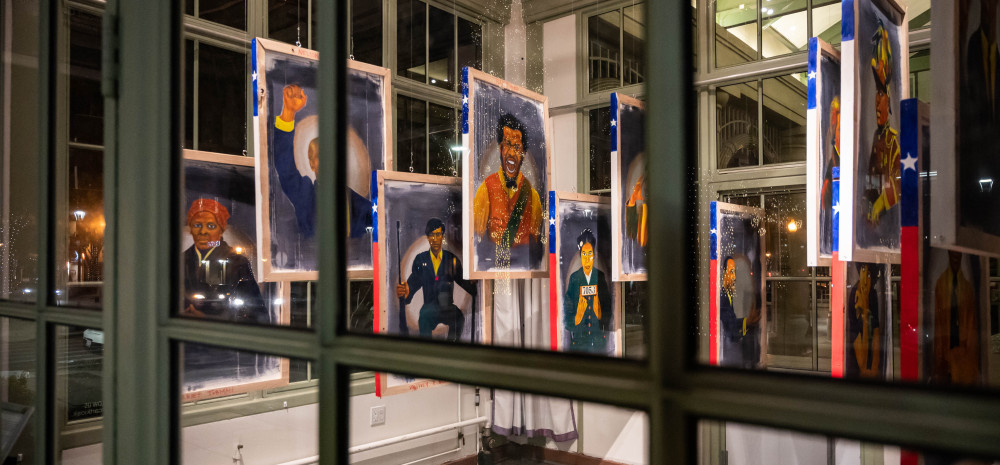I am enraptured with the opportunity to create a poignant installation reflected through 26 portraits, collectively titled “A Difficult Conversation: a commemoration”. The title alludes to what parents of Black children have coined as “The Talk”. This is the necessary verbal education passed down from elder generations to our younger generation involving the facts of life of being Black in America. “It’s important to prepare all children for a world that often perceives Black children differently from other children, and having those talks can empower children, rather than scare them.” A quote from child development specialist Angela Searcy describing a consequence rooted from systemic racism.
Associate professor at the University of Chicago School of Social Service Administration states, “Black children particularly and Black people have been stripped of our innocence. The research tells us this, we know that [the judicial system] views Black boys as older by four years on average, it reports them being perceived to be less innocent.” ‘The Talk’ transcends through urban and rural families alike, from the suburbs to the inner cities.
My parents were also burdened with this task, raising a young Black male in a predominantly all white neighborhood. I have already had The Talk with my 11 year old and 9 year old sons. I talk to them continuously about engagement with authority figures, from being respectful to understanding their rights. I let them know that due to their skin color and facial features, they will not be seen the same as some of their friends and that they may not receive the same empathy or humane decency, even though equally deserved.
“A Difficult Conversation”, for me as a Black artist, hints towards the conversation our nation is currently involved revolving around systemic racism. I painted 13 portraits using only primary and secondary colors in a value order set from lightest to darkest. Accented with metallic gold and silver using bold strokes. These figures, Black leaders such as Harriet Tubman, Angela Davis, Marcus Garvey, Nelson Mandela, James Baldwin, and others, will pose with gestures and motions of hope, and a positive outlook towards the future. On the reverse side of my portraits of Black famous pioneers, both internationally known and studied throughout history, are 13 portraits of everyday African Americans who have lost their life due to systemic racism. These headshot portraits, similar to the large attractive portrait busts displayed during funerals and wakes, depict faces exuding confident and pleasant demeanors painted with hues ranging from black to white.
I view “A Difficult Conversation: a commemoration” as a marker in time, a statement for forward movement not regression, and in reality, a memorial to the greatness and accomplishments Black people should be credited and admired for, despite the oppression and adversity thrust upon us. Despite dark times, I do see glimmers of hope, solidarity, and a deeper and wider understanding as a common community.
